
Top Ten Tuesday is a weekly discussion hosted by That Artsy Reader Girl (and formerly hosted by The Broke and the Bookish), and this week’s topic is the top ten books that surprised you (in a good way or a bad way), and I’m going to go with the more positive route, because usually if books are surprisingly bad, I just stop reading them or choose to forget about them (unless they’re legitimately awful. And that’s pretty rare).
My list will focus on the top ten books that surprised me in 2017, so it’s functioning sort of as a recap for last year’s reading as well, since I was a little lazy and perturbed by the lack of functioning keyboard to have any desire to write anything. Anyway, this list is not in ranking order, but in order from when I read it in the year, from the beginning of 2017 to the end of the year.
- The Left Hand of Darkness, by Ursula K. Le Guin. I think I read this many, many years ago when I was much younger and much less aware of what science fiction could do in terms of exploring humanity and culture instead of merely exploring space. Ai, the main character of this book, is at first unsettled by the sense of duality and ambisexuality on Gethen, and this unsettled feeling is a direct exploration of how gender functions in our own society (granted, in 1969, the much-broadcast definitions were a little different than the conversations we’re having today, so some of it feels outdated). However, a lot of it feels so relevant, and it made me think and it made me wonder, and I think that’s what some of the best science fiction should do. “It is yin and yang. Light is the left hand of darkness… how did it go? Light, dark. Fear, courage. Cold, warmth. Female, male. It is yourself, Therem. Both and one. A shadow on snow.”
- The Hate U Give, by Angie Thomas. Ever since I got my hands on an ARC from the table at work, I’ve been telling everyone I know to read this book. It’s relevant, it’s nuanced, it’s heart-wrenching. Though often hilarious and heartwarming at times, Thomas’s novel further reveals to us the consistent, prevalent institutional racism and broken criminal justice system in America in which so many people (without consequence!) continue to violate the civil rights of thousands because of the color of their skin. It will break your heart; it will make you angry. Read it. “Sometimes you can do everything right and things will still go wrong. The key is to never stop doing right.”
- The Stars are Legion, by Kameron Hurley. I read this book a year ago, and I haven’t been able to stop thinking about it since. It’s sci-fi just how I like it. It’s gross, it’s visceral, and it’s an angry yell into the void of space. I mean, don’t you want to read about asexual ships that give birth to whatever the ship needs, cannibalistic women who eat their deformed young, and womb/uterus/placenta references (with all of the associated fluids) all over the place? Yes, you do. I don’t want to reveal too much about the plot or the characters because half of the enjoyment of this is getting to discover that for yourself. Just read it. ASAP. “When you understand what the world is, you have two choices: Become a part of that world and perpetuate that system forever and ever, unto the next generation. Or fight it, and break it, and build something new. The former is safer, and easier. The latter is scarier, because who is to say what you build will be any better?”
- The Paper Menagerie, by Ken Liu. The thing I liked most about this collection of stories, aside from Liu’s deft skill at writing and blending several different genres, is that so many of the stories focus on the idea of storytelling and what that means for us as people and as a society. In the collection, you’ll read about the ways in which species across the universe record their stories for the present and the future (“The Bookmaking Habits of Select Species”), the ways in which society tells us stories to keep us controlled and how difficult it is to break the illusions (“Perfect Match”), the literal power of words (“The Literomancer”), and the literal preservation of memory to be “read” and its upsides and pitfalls (“Simulacrum”). “Time’s arrow is the loss of fidelity in compression. A sketch, not a photograph. A memory is a re-creation, precious because it is both more and less than the original.”
- Moby-Dick, by Herman Melville. Moby-Dick functions best for you, dear reader, when you are familiar with the history of the novel. I think I read this at a pertinent time in my life. Had I read it before I learned the history of the narrative, the novel, the American novel, religion and its function in the American novel, the personal life of Melville (and by extension Hawthorne), and postmodernism (and one can argue whether or not this novel is considered postmodern, but it’s different than anything else I’ve read from the time period and knowing how postmodernism works in a literary setting adds to my own consumption and enjoyment of the novel on some level because its lucidity is very much like James Joyce’s style), I probably wouldn’t have appreciated it as much as I do now. It’s a hefty novel, a undertaking, but it’s so incredibly worth it. It’s a love story, and you will wonder whether or not you are chasing your own white whale. “There are certain queer times and occasions in this strange mixed affair we call life when a man takes this whole universe for a vast practical joke, though the wit thereof he but dimly discerns, and more than suspects that the joke is at nobody’s expense but his own.”
- The Whole Art of Detection, by Lyndsay Faye. I am so particular about my Sherlock Holmes pastiches. It’s so difficult to capture the essence of Doyle’s original stories while simultaneously making it new, and Faye does this with exemplary flair. All of these stories feel at once rooted in time and timeless, and Faye manages this with her effortless, captivating writing. If you’re a fan of Sherlock Holmes in any capacity and love a good historical mystery, read this right away. Dust and Shadow, a mystery in which Holmes and Watson discover the true identity of Jack the Ripper, is just as engaging. “In the broad light of day, I could not give his tale nearly so much credence as I had granted it when sitting rapt before a midnight fireplace whilst the tempest without erased the natural world.”
- Borne, by Jeff VanderMeer. This is one of those cerebral post-apocalyptic dystopian novels that will linger with you long after you finish it. This standalone novel from the author of the Southern Reach trilogy explores how humans abuse science and nature for technological or monetary gain, and Borne shows us the aftermath of that greed. The novel also explores what it means to be a person, what it means to love and then to let go of love, what it means to live and then to die, and what it means when one finds beauty in the midst of so much chaos. VanderMeer manages to pack so much description, emotion, and longing into such a short novel, and it’s a novel that will make you reread passages and sentences again and again because of their beauty and complexity. The companion novella, The Strange Bird, is just as compelling. “He was born, but I had borne him.”
- Wake of Vultures, by Lila Bowen. This is a supernatural Western, and it’s AMAZING. This follows Nettie Lonesome, a half-black half-Comanche young woman, who sets out to discover herself, her identity, and her place in the world only to discover that there are monsters lurking everywhere. This is steeped in Native American folklore with a hefty dash of that Old West mythology. Nettie is resilient, disguises herself up as a man and takes on a new name or two in order to get what she wants out of life, and begins to use her skills for the betterment of herself and others once she realizes she has the capacity to do so. It’s also a fantastic story with so many twists and turns, and you won’t be able to put it down, because I certainly couldn’t. I can’t wait to read the rest of this series. “Your heart is not a rock that stands unchanging. It’s like water. It flows, it moves, it allows neither boulders nor canyons to stand in its way. It hardens and softens and expands to fill new spaces. You are still becoming yourself. And you have a lot to learn.”
- The Seven Husbands of Evelyn Hugo, by Taylor Jenkins Reid. I really didn’t know what to expect from this when I received it as part of BookSparks’s summer reading challenge, but I didn’t expect to read a heartfelt story of a woman of color navigating that man’s world called Hollywood. It was such a breezy, gossipy (but deep) read, and it’s about Evelyn Hugo coming clean about her life and owning up to her flaws and essentially wanting to become real after being put on a pedestal her entire life. It’s about coming to terms with the reality that behind someone’s “perfect life” is a person who struggles with themselves and their daily lives just as much as the rest of us. I don’t really cry at books, but this one got me teary-eyed more than once, and that’s saying something. “They are just husbands. I am Evelyn Hugo. And anyway, I think once people know the truth, they will be much more interested in my wife.”
- The Black Tides of Heaven, by JY Yang. I have so many feelings about this book (and this series), and all of them are good. SO GOOD. If you like -punk genres, you need to read this. If you like stories exploring identity and gender and what it means to be a person, you need to read this. If you just like engaging fantasy, you need to read this. In Yang’s Protectorate, gender is chosen (or not) by the person and sexuality is fluid, and it’s such an amazing exploration on those subjects. It made me feel less alone on the subject of presentation, and I think it’s one of those books that will make other people feel less alone on so many fronts. The second part is just as moving, and I am eagerly awaiting the third. “The saying goes, ‘The black tides of heaven direct the courses of human lives’. To which a wise teacher said, ‘But as with all the waters, one can swim against the tide.'”
After compiling this, a majority of the books have a similar theme: identity, discovery, and what it means to be yourself, and for me, 2017 was a lot of that, so it’s interesting to note that the books I read last year that have stuck with me reflect that theme as well.

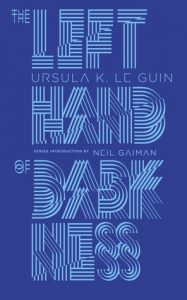
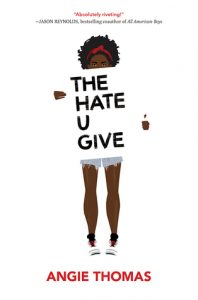
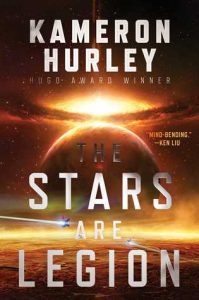
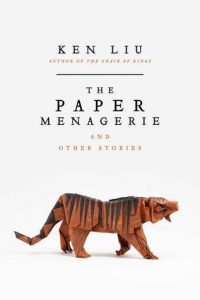
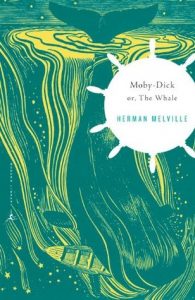
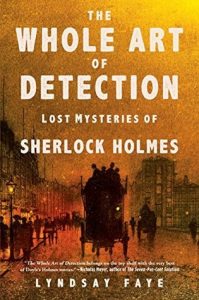
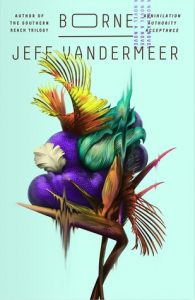
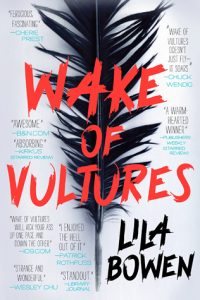
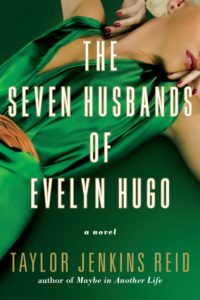
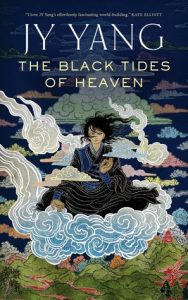

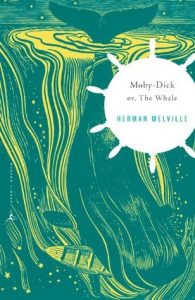 Title:
Title: 
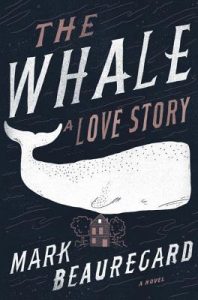 Title:
Title: